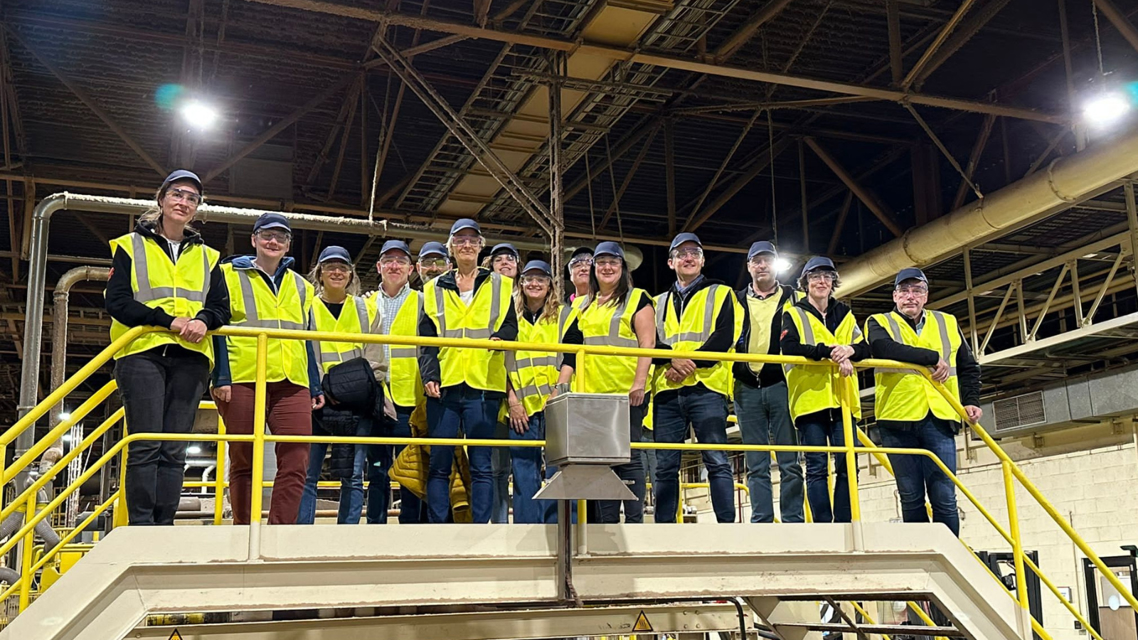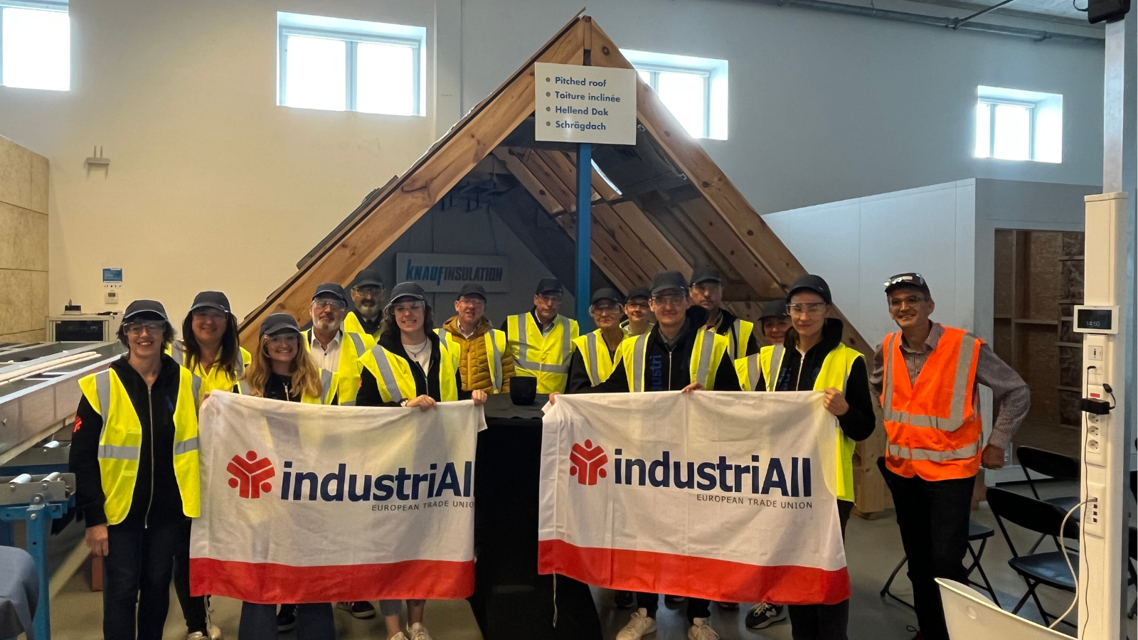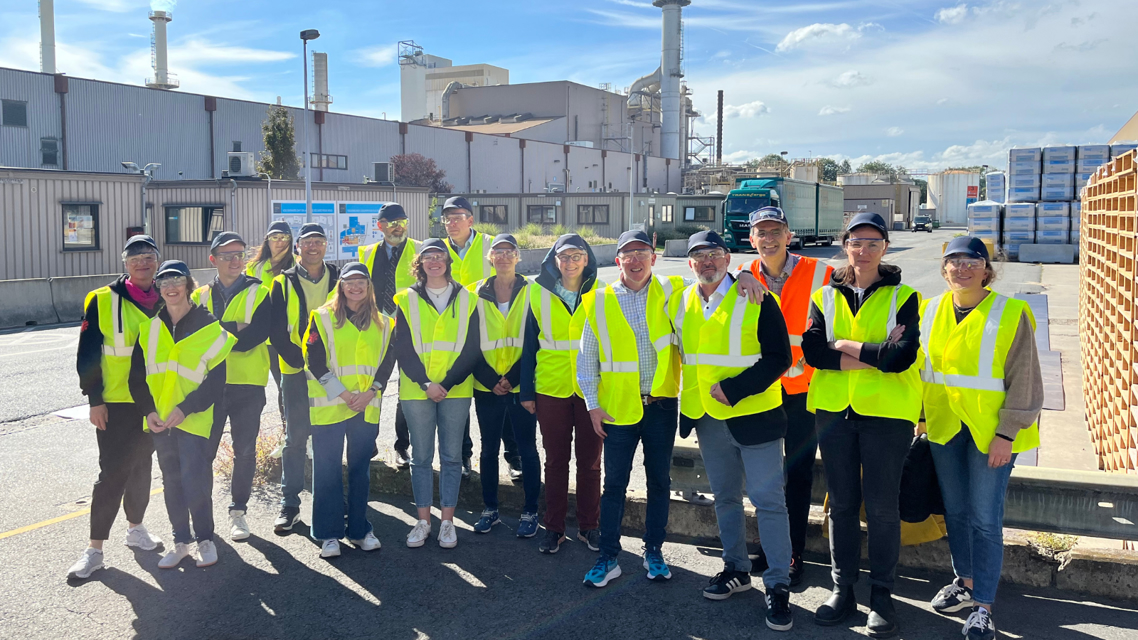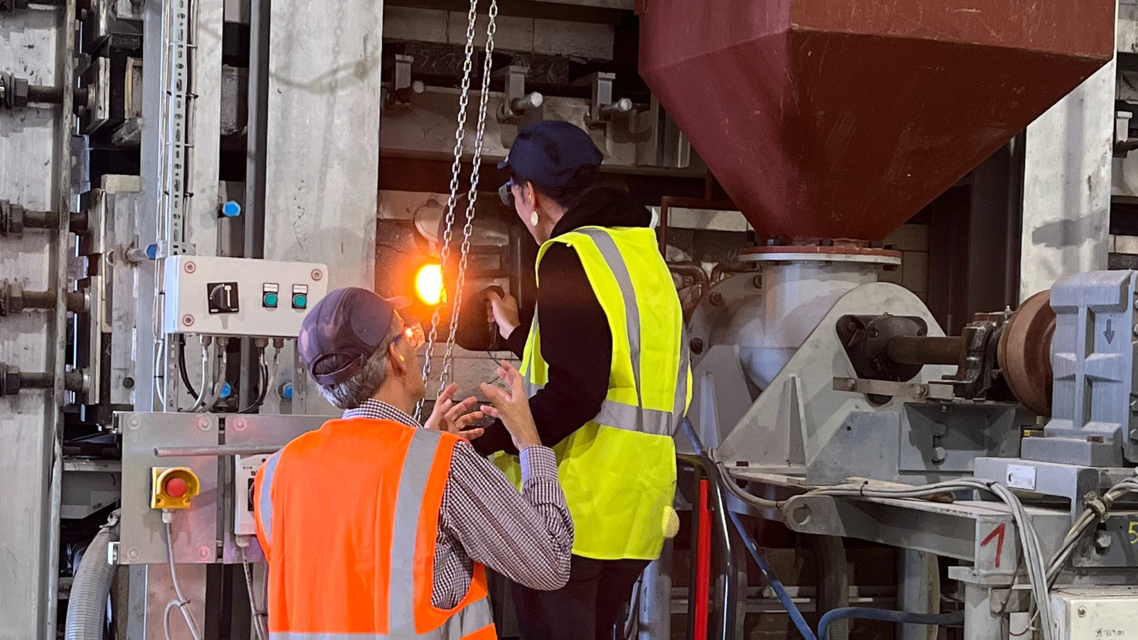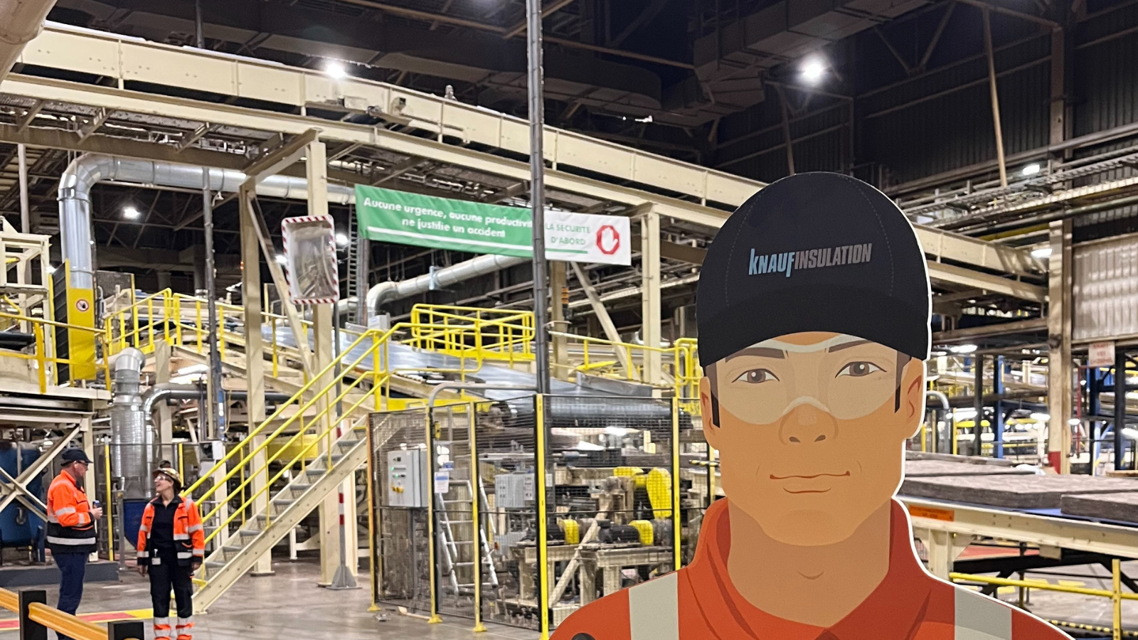IndustriAll Europe’s basic materials network has an important role to play ... for developing trade union demands and strategies to secure the future of the basic materials industries in Europe.
On 20 and 21 September, industriAll Europe’s basic materials network held its regular meeting in Brussels and Visé, Belgium.
The network represents workers in a range of industries (rubber, plastics, glass, paper, cement, non-coal mining) that supply essential materials for various industries and sectors. These sectors are mostly energy intensive and have considerable environmental impact.
Common challenges and demands
Workers in these energy intensive industries all face common and significant challenges, including the need for greener production processes, rising energy costs and energy security.
The meeting therefore examined latest developments in the sectors in this respect and in the regulatory environment, and participants discussed common demands. The obvious key concern for workers and their representatives is how to secure Europe’s basic materials industries and good jobs in these industries. Safeguarding these industries requires massive investment in infrastructure. Energy security and supply, for example, must be ensured through strong electricity grids and the use of hydrogen as a clean and sustainable energy source.
Participants also discussed Carbon Capture Use and Storage (CCUS) as an issue of common interest to the basic materials network. CCUS is considered a critical technology as it can reduce CO2 emissions from industries that are difficult to decarbonise. The EU has been actively promoted CCUS as a key technology for reducing greenhouse gas emissions and achieving climate goals. However, the introduction and deployment of CCUS can be challenging due to the myriad of national permitting processes, which can be complex and lengthy. Participants agreed on the importance of the technology for basic materials sectors.
Looking further at relevant legislation, participants discussed packaging regulation. While supporting the objective of reducing the environmental impact of packaging materials and minimising waste, participants expressed concern about calls to prioritise re-use over recycling of packaging materials. This carries a significant risk of destroying a mature recycling industry and jobs in Europe.
The meeting further discussed the prospects for Europe’s glass industry, which is currently under serious threat of losing production and jobs. Participants stressed the importance of ensuring a future for glass in Europe, not only because of its immense cultural heritage and craftsmanship, such as the world-famous Murano glass produced in Italy or stained glass produced in France, but also because of the need to support industries that feed into net-zero technologies, such as solar panels.
Participants also exchanged information on recent collective bargaining rounds in different countries. Sébastien Dupanloup (Centrale Générale - FGTB, Belgium), spokesperson for the network, reported on an agreement on training reached by the social partners in the Belgian cement and glass industry. The agreement provides for five training days a year, one of which must be devoted to training on climate change and the transition to a low carbon economy.
The network meeting was therefore an excellent opportunity for the workers representatives to hear and learn about innovative approaches in the sector from across Europe. A visit of Knauf Insulation in Visé, producer of glass mineral wool used in building insulation, added to the learning experience.
The site visit gave participants the opportunity to better understand the challenges facing the industry and how these can be managed in dialogue with workers. Management stressed during the site visit that without a functioning social dialogue, companies and industry will not survive in a tough global competition. Participants heard about the company’s health and safety strategy (zero accident policy), its diversity and training policies and, crucially, its sustainable approach to production. Managing soaring energy costs is a major challenge and barrier for keeping production in Europe. The recent installation of large scale photovoltaic panels at the factory can only go so far in mitigating this.
Judith Kirton-Darling, Acting Joint General Secretary of industriAll Europe, comments:
“The importance of the basic materials industries cannot be overstated. We find these industries at the start of important supply chains, such as the automotive industry, and Europe has developed strategic competences, skills and capabilities in these industries. They also contribute to strategic autonomy and provide good industrial jobs.
“For industriAll Europe and its members it is absolutely vital to keep these industries in Europe! We therefore call on policymakers to support them with a robust energy infrastructure and regulations that will ensure and not hinder their competitiveness. Most importantly, we need workable transition pathways and a seat at the table for workers when these pathways and policies are designed and implemented.
“IndustriAll Europe’s basic materials network has an important role to play in this respect. Not only for mutual learning, but also for developing trade union demands and strategies to secure the future of the basic materials industries in Europe. We invite and encourage affiliates to get involved and join our networks!”
The basic materials network is one of eleven sector networks organised by industriAll Europe. It holds two regular meetings per year.
